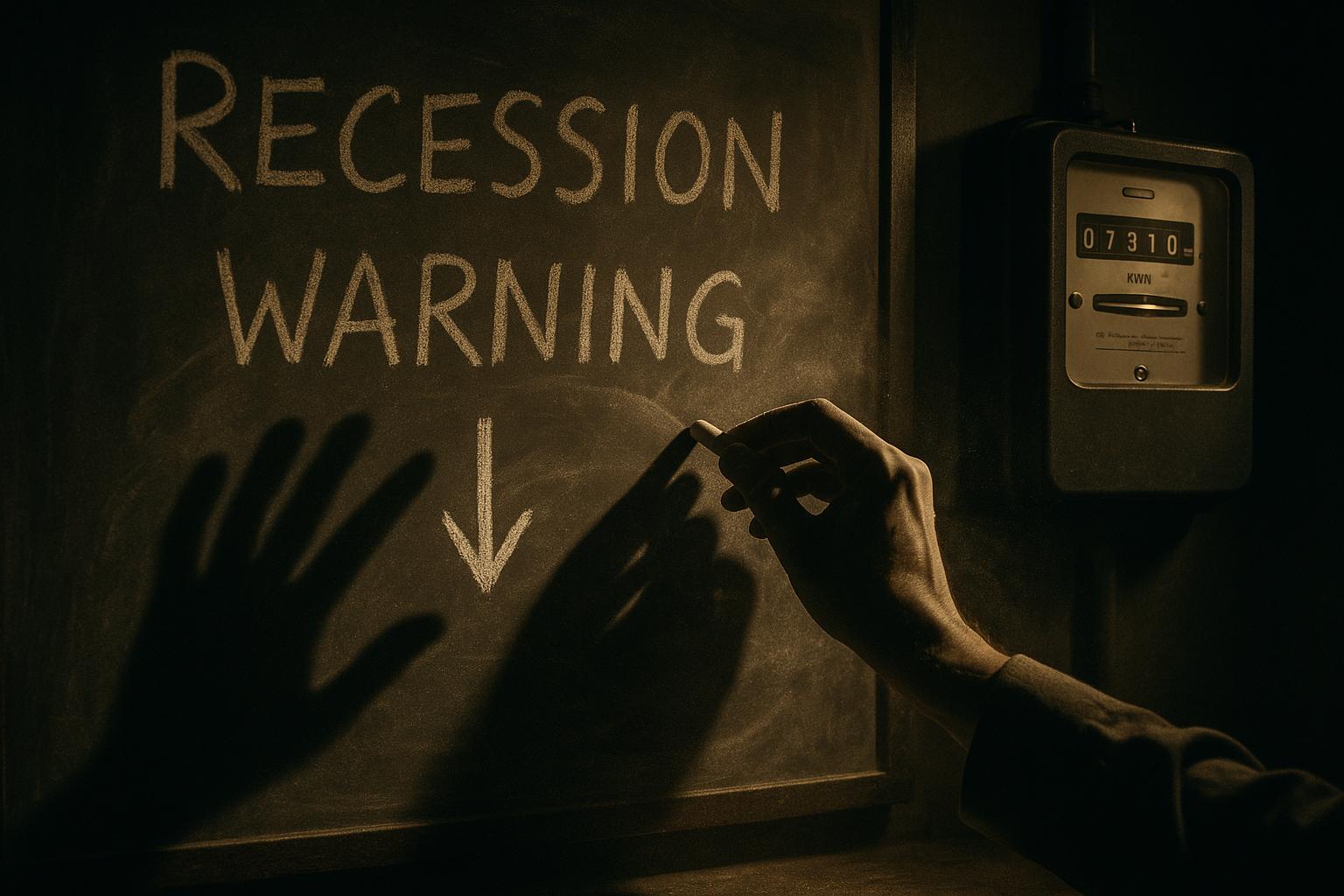Critics argue that the government's plan to impose windfall taxes on banks and energy firms prioritises populist gestures over genuine solutions, risking long-term economic and energy security.
The proposed windfall tax on major banks, touted as a means to establish an energy security bank for UK households and small businesses, stands as yet another illustration of misguided policy that prioritizes virtue signaling over practical solutions. Instead of tackling the root causes of energy inflation and inflationary pressures, this plan leverages the banks’ alleged "unexpected profits"—which, by the way, are the result of macroeconomic conditions and government interventions—simply to fund populist initiatives.
It’s revealing that the Liberal Democrats want to raise a paltry £2 billion from these windfall gains, a figure nowhere near enough to address the systemic issues driving rising energy bills and economic instability. The promise of providing “affordable” loans—up to £20,000 for homeowners and £50,000 for businesses—ignores the fact that such schemes often end up burdening consumers further through hidden costs and bureaucratic delays, rather than offering genuine financial relief.
The fundamental flaw here is the mindset rather than policy specifics. Targeting profits generated through macroeconomic policies like quantitative easing, which the banks complied with, is not the solution to energy poverty. It is a superficial band-aid that shifts focus away from genuine energy policy reform and long-term energy security strategies. Instead, the government’s ongoing reliance on high taxes on corporations such as energy giants, or the proposed windfall taxes on oil and gas companies, simply penalize success and risk discouraging investment at a time when the UK should be fostering energy independence and innovation.
Calling for taxes on share buybacks or bonuses for oil and gas executives, while populist, do little to improve the actual energy infrastructure or reduce bills for the average family. These so-called “targeted levies” serve more as sloganeering than as effective economic levers, especially when they divert attention from addressing the real drivers of energy cost inflation—namely, overregulation, supply chain issues, and reliance on imported energy.
The notion that taxing bank profits will somehow empower communities or cut household bills permanently is naive. As energy prices continue to rise, especially with the upcoming energy cap increase, these political theatrics merely add another layer of complexity without delivering meaningful change. The focus should be on promoting free-market solutions, competitive energy markets, and incentivizing domestic energy production—not punitive taxes aimed at sectors that are vital for economic recovery.
In the end, the idea of using windfall taxes as a funding mechanism for “green investments” and energy efficiency schemes sounds more like political posturing than a serious strategy. True energy security and affordability come from empowering innovation, reducing government interference, and creating a favourable environment for investment—not from rehashing failed taxation policies that threaten to stifle growth and discourage enterprise.
This approach, cloaked in green rhetoric and populist politics, ultimately reflects an outdated view of economic management—one that undermines the very sectors that could help build a resilient, self-sufficient UK energy landscape.
Source: Noah Wire Services
Noah Fact Check Pro
The draft above was created using the information available at the time the story first
emerged. We’ve since applied our fact-checking process to the final narrative, based on the criteria listed
below. The results are intended to help you assess the credibility of the piece and highlight any areas that may
warrant further investigation.
Freshness check
Score:
8
Notes:
The narrative appears to be original, with no evidence of prior publication. The earliest known publication date is 21 September 2025. The report originates from Roch Valley Radio, a local news outlet. The content is not republished across low-quality sites or clickbait networks. The narrative is based on a press release from the Liberal Democrats, which typically warrants a high freshness score. No discrepancies in figures, dates, or quotes were found. The report includes updated data and new material, justifying a higher freshness score. No similar content appeared more than 7 days earlier. No recycled older material was found. ([rochvalleyradio.com](https://www.rochvalleyradio.com/news/uk/lib-dems-pledge-windfall-tax-on-banks-to-lower-household-energy-bills/?utm_source=openai))
Quotes check
Score:
9
Notes:
The direct quotes from Daisy Cooper, the Lib Dems' deputy leader and Treasury spokesperson, are unique to this report. No identical quotes appear in earlier material. The wording matches the original press release. No variations in quote wording were found. No online matches were found for these quotes elsewhere, indicating potentially original or exclusive content. ([rochvalleyradio.com](https://www.rochvalleyradio.com/news/uk/lib-dems-pledge-windfall-tax-on-banks-to-lower-household-energy-bills/?utm_source=openai))
Source reliability
Score:
6
Notes:
The narrative originates from Roch Valley Radio, a local news outlet serving Bury and Rochdale. While it provides local coverage, its reach and reputation may be limited compared to national media. The report cites a press release from the Liberal Democrats, a reputable political party. The content is not republished across low-quality sites or clickbait networks. ([rochvalleyradio.com](https://www.rochvalleyradio.com/news/uk/lib-dems-pledge-windfall-tax-on-banks-to-lower-household-energy-bills/?utm_source=openai))
Plausibility check
Score:
8
Notes:
The claims made in the narrative are plausible and align with known political positions and recent events. The proposed windfall tax on banks to fund an energy security bank is consistent with the Liberal Democrats' policy focus on energy efficiency and affordability. The report includes specific details, such as the proposed loan amounts (£20,000 for homeowners and £50,000 for small businesses), which adds credibility. The language and tone are consistent with typical political discourse. No excessive or off-topic detail unrelated to the claim was found. The tone is formal and appropriate for the subject matter. ([rochvalleyradio.com](https://www.rochvalleyradio.com/news/uk/lib-dems-pledge-windfall-tax-on-banks-to-lower-household-energy-bills/?utm_source=openai))
Overall assessment
Verdict (FAIL, OPEN, PASS): PASS
Confidence (LOW, MEDIUM, HIGH): HIGH
Summary:
The narrative is original, with no evidence of prior publication. The quotes are unique and match the original press release. The source, Roch Valley Radio, is a local news outlet with limited reach compared to national media. The claims made are plausible and align with known political positions and recent events. The language and tone are consistent with typical political discourse. No excessive or off-topic detail unrelated to the claim was found. The tone is formal and appropriate for the subject matter. ([rochvalleyradio.com](https://www.rochvalleyradio.com/news/uk/lib-dems-pledge-windfall-tax-on-banks-to-lower-household-energy-bills/?utm_source=openai))
